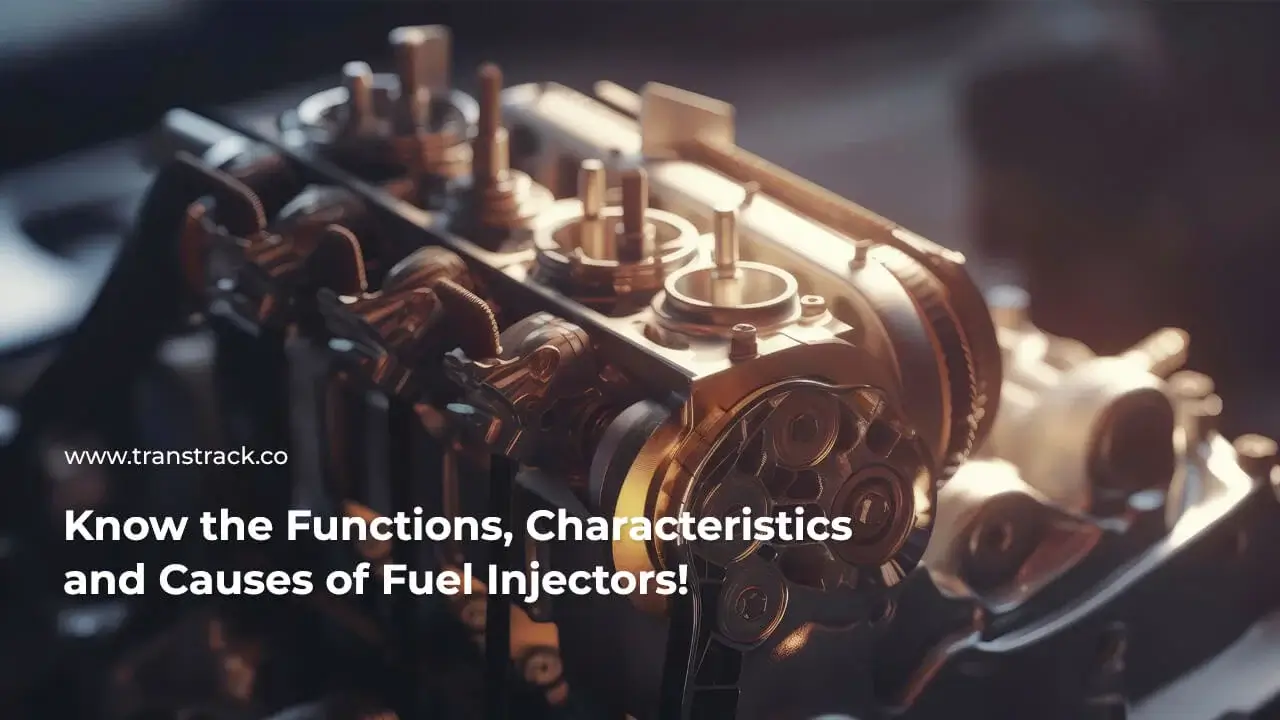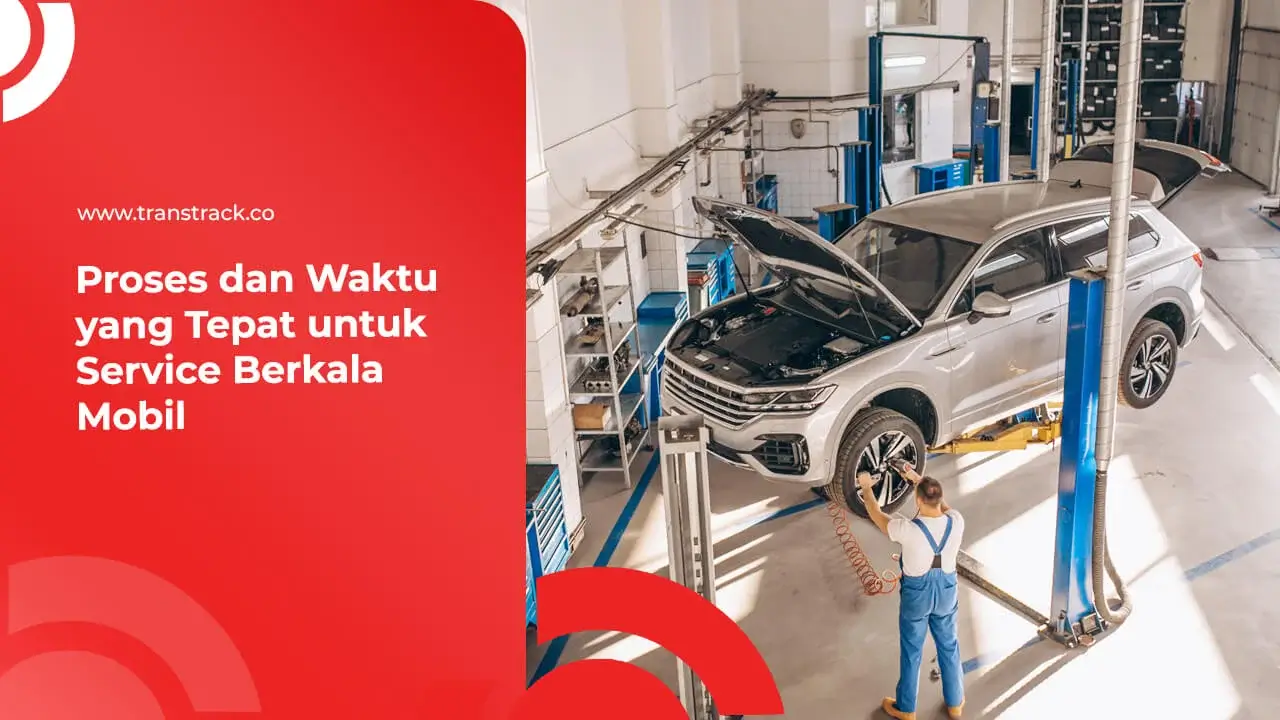Know the Functions, Characteristics and Causes of Fuel Injector!

Fuel injection is a system used in motor vehicles to send fuel into the engine combustion chamber precisely and efficiently. This system replaces the traditional method of using a carburetor to mix air and fuel before entering the engine. In a fuel injector, fuel is sprayed directly into the combustion chamber in the form of a fine mist or jet, depending on the type of system used.
There are several types of fuel injector systems, such as port fuel injection (PFI), throttle body fuel injection (TBI), and direct fuel injection (GDI), each of which has its own way of working and advantages. Fuel injection systems have become the standard in the modern automotive industry because of these advantages. Find out more details through the following TransTRACK article!
What is the function of fuel injection in a car?
The main function of the fuel injector system in a car is to regulate and spray fuel into the engine combustion chamber in a precise and efficient manner. This is done to support optimal combustion and ensure good engine performance. The following are some of the main functions of the fuel injection system in cars:
Air and Fuel Mixture Control
The fuel injector system regulates the ratio of the air and fuel mixture that enters the combustion chamber. This is important to achieve efficient combustion and optimize fuel consumption.
Controlling the Amount of Fuel
This system ensures that the amount of fuel sprayed into the combustion chamber matches the engine’s needs under various conditions, such as when accelerating, driving on the highway, or when stopped.
Injection Timing Control
The fuel injector regulates the fuel spray time so that it matches the engine combustion cycle. This ensures that fuel is sprayed at the right time in the engine cycle to achieve optimal power.
Quick Response
The fuel injector system responds quickly to changes in engine speed and load. This is important to provide good engine response while driving, including responsive acceleration and constant speed.
Reducing Emissions
By better controlling combustion, fuel injectors help reduce exhaust emissions that are detrimental to the environment, such as hydrocarbons, carbon monoxide and nitrogen oxides.
Increased Efficiency
The fuel injector system helps increase the vehicle’s fuel efficiency, which means lower fuel consumption per distance traveled.
Engine Temperature Control
Fuel injection can also be used to control engine temperature by regulating the amount of fuel sprayed into the combustion chamber. This can help prevent overheating or maintain optimal operating temperatures.
By performing all these functions, a car’s fuel injection system plays a key role in vehicle performance and emissions control, making it a better choice than a carburetor in most modern vehicles.
Signs of damaged fuel injection
When the fuel injection system on a car is damaged, several signs or symptoms that may appear include:
Poor Engine Performance
The engine may not function properly and may experience problems such as lack of power, abnormal vibrations, or instability in engine rotation.
Increased Fuel Consumption
One of the characteristics of fuel injection damage is an unreasonable increase in fuel consumption. This can happen because the system is not spraying fuel efficiently.
Abnormal Engine Vibration
The engine may experience unusual vibrations or be unstable when idling. This could be a sign of a fuel injector problem.
Unstable Idle
The engine may struggle to maintain a stable idle. An unstable idle could mean that the fuel injectors are not functioning properly.
Rough or Noisy Engine Sound
Damage to the fuel injection system can result in a rough or noisy engine sound, especially during acceleration or when trying to maintain a constant speed.
Jerking or Hesitation
The vehicle may experience jerking or reluctance when accelerating. This could be a sign that the fuel is not being sprayed properly.
Error Code Appears (Check Engine Light)
If a problem occurs with the fuel injection system, the vehicle may detect the problem and activate the “Check Engine” warning light on the instrument panel. You can use an error code reader (OBD-II scanner) to read specific error codes.
Excessive Exhaust Gas Emissions
Damage to the fuel injection can cause increased emissions of harmful exhaust gases such as carbon monoxide and hydrocarbons.
Difficulty Starting the Engine
If the fuel injection system has serious problems, the vehicle may be difficult to start or may not start at all.
Strange Smell from Exhaust
The smell of unburned fuel or a strange smoke smell from the exhaust can be a sign that the fuel injection is damaged.
If you experience one or more of the characteristics above, you should immediately contact a trusted repair shop or mechanic to diagnose and repair fuel injection system problems. Fast and correct fuel injection repairs will help maintain the performance and efficiency of your vehicle and avoid more serious problems in the future.
The cause of the injection is damaged
Damage to the fuel injection system in a car can be caused by various factors. Among the common causes include:
Dirt or Scale Piles
Fuel injectors can become clogged with dirt, deposits, or scale from the fuel. This can interfere with the smooth flow of fuel.
Improper Fuel
The use of low quality fuel or not in accordance with the manufacturer’s recommendations can cause damage to the fuel injection system.
Fuel Contamination
Dirt, water, or foreign substances in the fuel tank can reach the injectors and damage them.
Electrical Damage
Problems with cables, connectors, or sensors related to the fuel injection system can result in problems with fuel control.
Improper Fuel Pressure
Fuel pressure that is too low or too high can damage the injectors and interfere with proper fuel flow.
Faulty Sensor
Sensors that detect various parameters such as air temperature, engine temperature, air pressure, or oxygen in the exhaust gas can be damaged and interfere with fuel regulation.
Usage Life (Age)
Over time and use, fuel injector system components, including the injectors, can experience decreased performance or wear. This occurs as a result of normal use.
ECU Theft or Manipulation
Illegal modifications to a vehicle’s Electronic Control Unit (ECU) can damage the fuel injector system or change fuel settings.
Mechanical Damage
Damage to physical components such as injectors, fuel rails, or fuel pressure regulators can occur due to wear or accident.
Broken or Shorted Cable
Wires connecting electrical components in the fuel injector system can become disconnected or short-circuited, which can cause problems with fuel control.
It is important to remember that diagnosing damage to the fuel injector system can be a complicated task and requires special tools. If you experience symptoms of damage or suspect there is a problem with the fuel injection in your car, you should immediately consult a skilled mechanic or trusted repair shop. They can perform the necessary testing and repairs to resolve the issue.
In an effort to maintain optimal performance of your vehicle’s fuel injector system, and to ensure that you always maintain your car properly, you can utilize the Vehicle Maintenance System from TransTRACK. This system is an efficient solution to track and manage your vehicle maintenance.
So, if you want to keep your fuel injector system and other vehicle components in the best condition, consider using the TransTRACK Vehicle Maintenance System. With good maintenance and efficient management, you can extend the life of your vehicle, save on repair costs, and stay safe on the road. Feel free to contact TransTRACK for more information about their solutions.
Topic





